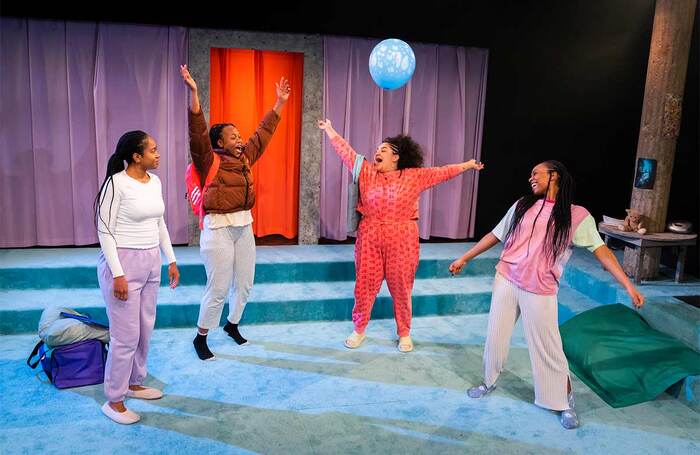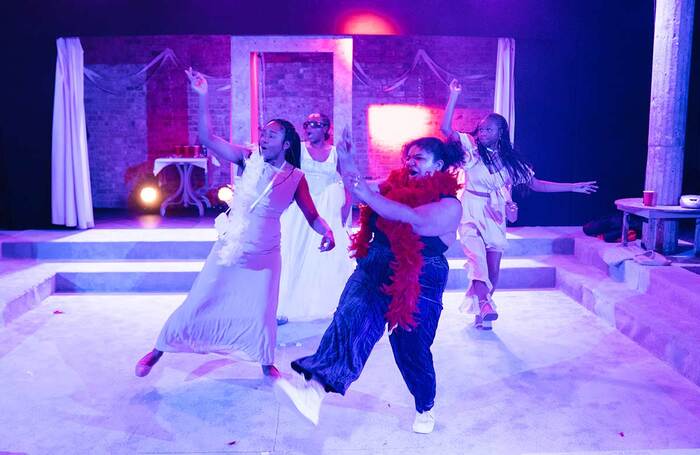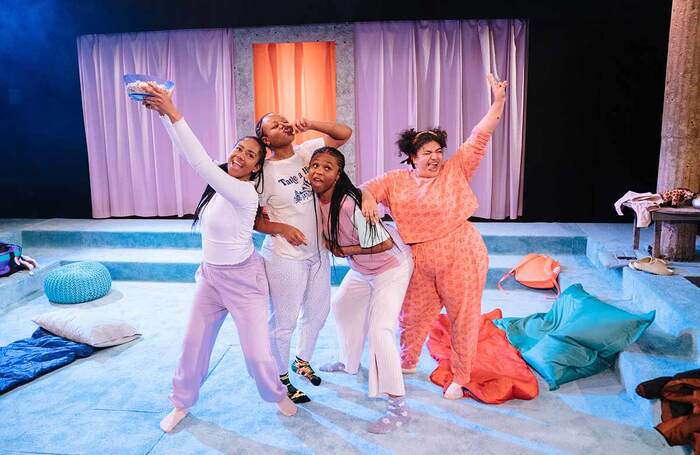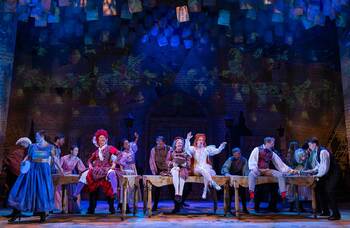






Joyous rites-of-passage drama is a giddy sugar rush
Like a jar full of bright jelly beans, this new play by Matilda Feyiṣayọ Ibini is a sweet, vivid and joyous jumble. It’s stuffed with more ideas and plot strands than we can comfortably chew, and Ibini scatters them about with abandon rather than arranging them into a satisfying dramatic structure. But there’s such tenderness, humour and exuberance in the writing that it’s hard to resist. And Jade Lewis’ production, though it, too, needs a better defined shape and dynamics, is a giddy sugar rush.
It’s performed by a cast of four, three of whom – fast-rising screen actor Bukky Bakray included – are making their stage debuts here. Playing out across a handful of sleepovers and a school prom, in giggles and teasing, intense confidences and emotional confrontations, it’s a teenage rites-of-passage story that sees a quartet of close friends discovering themselves, each other and their place in the world as young Black women. Shan (Aliyah Odoffin), sensitive and shrewd, is living with sickle cell disease, which means contending with physical and psychological struggles that she mostly keeps to herself. Studious and devoutly Christian Elle (Shayde Sinclair) is secretly experiencing feelings that will bring her into conflict with her strict parents. Rey (Amber Grappy), who is of mixed heritage and proudly queer, desperately misses her mum, who died when she was little, and is mutinously at odds with her white stepmother. And Funmi (Bakray), who has a lethally quick wit and an eye for the boys, is embracing her Yoruba heritage.
The characters are a bit of a formulaic pick’n’mix selection. But they become richer and more real as we follow them through two years over which their hang-outs, on Cara Evans’ turquoise-carpeted bedroom set, become in their own way a kind of religious ritual, where confessions are made and the sacrament is popcorn and Haribo.
If it is effervescently entertaining to eavesdrop on their intimacy, we long for Ibini to dig a little deeper. Elle’s sexual awakening and her family’s shockingly extreme response in particular merits much weightier and more detailed exploration. Nor does a sudden bereavement register as powerfully as it should. Yet there are striking nuances in throwaway moments and offhand remarks: it’s clear from the other girls’ generosity, and the sudden black-out when the electricity key meter needs topping up, that money is particularly tight in Shan’s home; Funmi’s eagerness for a boyfriend seems to be as much about winning affirmation as chasing romance. And the writing glitters with whip-smart jokes, from Rey trying to convince the others that The Exorcist is a wholesome moral movie about spiritual salvation, to Shan’s gooey admiration of a boy with braces – “when he smiles, it actually sparkles!” It is a messy evening of female bonding – but when it’s this much fun, who would turn down the invitation?
More Reviews
More Reviews
Recommended for you
Most Read
Across The Stage this weekYour subscription helps ensure our journalism can continue
Invest in The Stage today with a subscription starting at just £5.99











